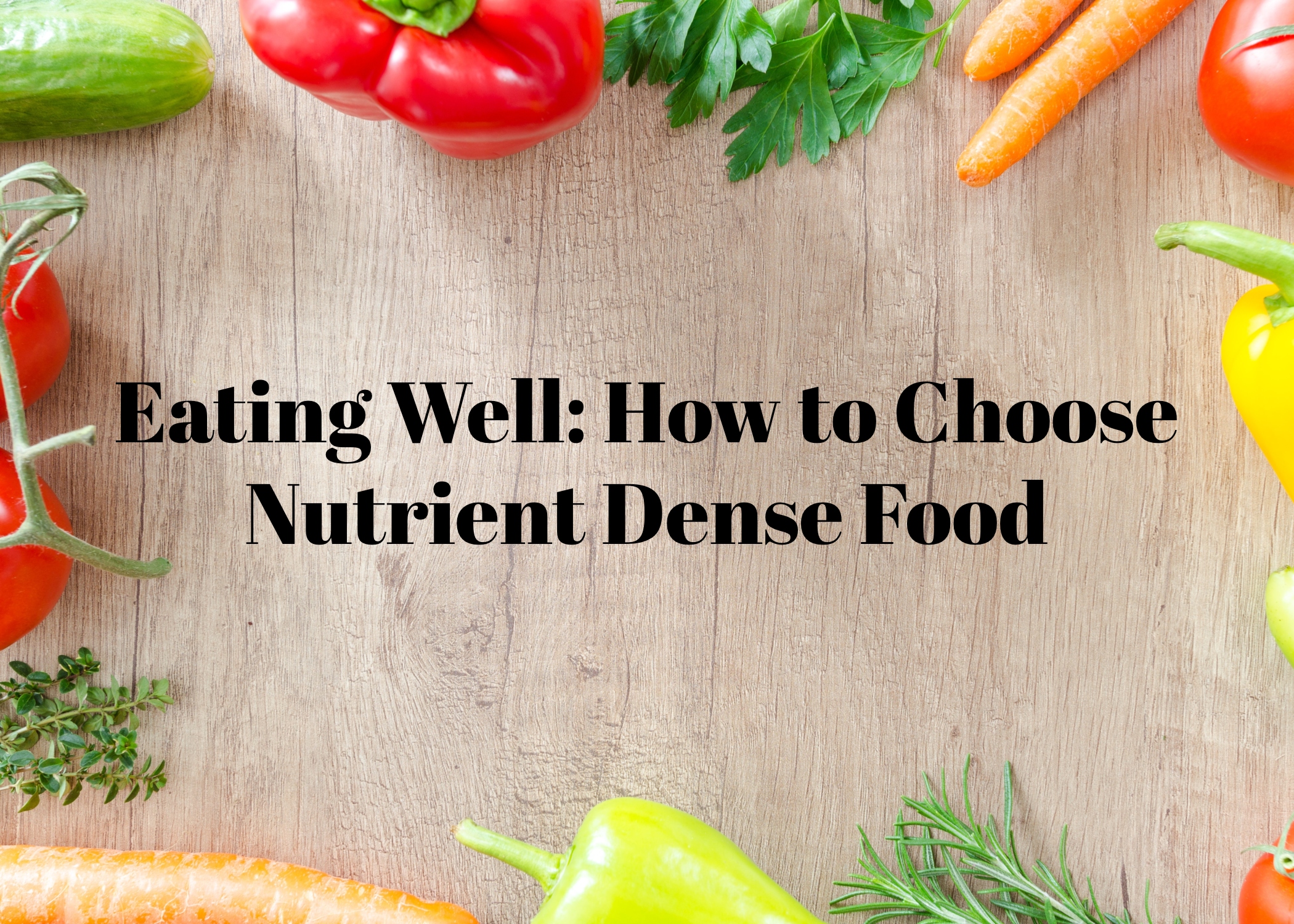To eat well, it’s best to choose a mix of nutrient- dense foods every day. Nutrient-dense foods are foods that have a lot of nutrients but relatively few calories. What should I eat? Plan meals and snacks to include: fruits & vegetables, whole grains, low-fat or fat-free dairy products, seafood, lean poultry & meats, beans, eggs and unsalted nuts
Fruits, vegetables and grains offer important vitamins and minerals to keep your body healthy. Most of these foods have little fat. They also have no cholesterol. Fruits and vegetables are also a source of fiber. Eating more fiber may help with digestion and constipation and may lower cholesterol and blood sugar.
Eat a mix of dark green vegetables (broccoli, spinach, kale, collard greens), red & orange vegetables (tomatoes, acorn squash, carrots, sweet potatoes, peppers), beans and peas (black beans, kidney beans, pinto beans, yellow lima beans), starchy vegetables less often (corn, green peas, potatoes), other vegetables (cauliflower, green beans, zucchini).
Also eat a variety of fruits (apples, bananas, strawberries, blueberries, oranges, melons, kiwi, etc.). You can buy most vegetables and fruits fresh and in very small quantities. Pick a rainbow of colors from a variety of sources. If your client can shop with you, help them pick out what they like. If they can’t go shopping, have them help you make a list for you or family. You can buy them whole, frozen, canned and you can eat them whole, cooked, mashed, cut-up or pureed. Remember, help your client/family make health choices!
If you care for an elderly loved one and would like help developing a care plan of any kind, please feel free to contact us. Wiser Home Care Services will provide you with a free care assessment. In addition, they can help your family establish a care plan to personally accommodate your loved one’s needs and help prevent falls and fall-related injuries.


One thought on “Eating Well: How to Choose Nutrient Dense Food”